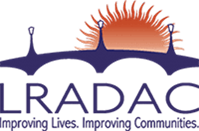Language is powerful. It can build people up or tear them down by applying labels that are unjust. Using appropriate language when speaking about substance use disorders and persons who struggle with substance use disorders is important to LRADAC and the work we do. In the professional field of treatment and recovery, many experts have been calling for a new language of recovery for many years and LRADAC embraces this new lexicon. Below are examples of changes in the language of recovery.
Substance Abuse -> Substance Misuse
The word abuse furthers the stigmatization of this disease. It also blames the individual with the illness while ignoring environmental and genetic factors. The preferred term is substance misuse.
Clean -> Sober or Substance-Free
Saying a person is clean when referring to their status as substance-free implies that a person who is actively using alcohol or drugs is “dirty.” In order to lend more dignity to a person who is suffering from this disease, the terms sober or substance-free are preferred.
Relapse -> Reoccurrence
Many field experts have noted that the terms “relapse” or lapse” have moral roots (ex: “lapse in judgment.”) To embrace more neutral terms, the word reoccurrence is considered to be more appropriate.
Addict -> Person with a Substance Use Disorder
Defining a person by the problem they face can interfere with their recovery. To humanize the person struggling with this chronic disease, the term “person with a substance use disorder” is preferred.

